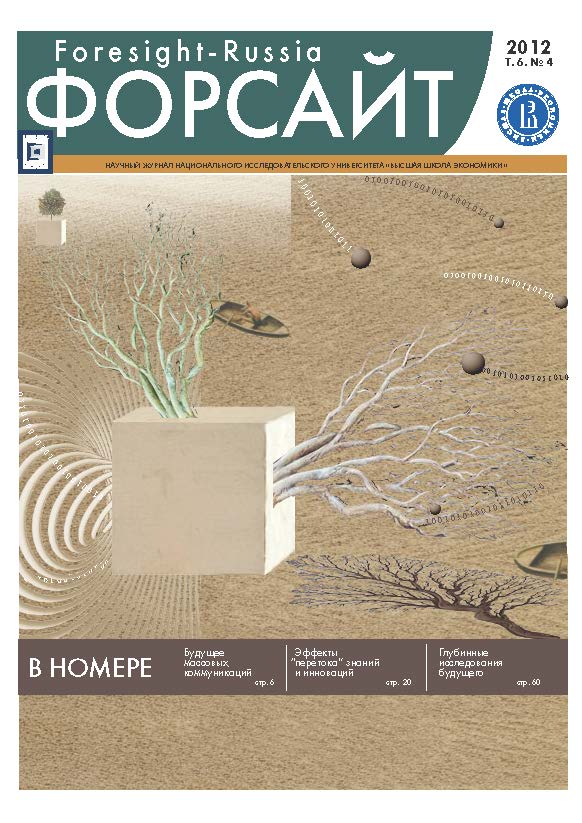Abstract
Anna Kachkaeva — Dean, the Faculty of Media Communications. E-mail: akachkaeva@hse.ru
Ilya Kiriya — Professor, the Faculty of Media Communications. E-mail: ikiria@hse.ru
National Research University — Higher School of Economics
Address: National Research University — Higher School of Economics, 20, Myasnitskaya str., Moscow, 101000
The paper is part of a large foresight study carried out by the authors at the HSE Institute for Statistical Studies and Economics of Knowledge for the Russian Ministry of Telecommunication and Mass Communications. It is important that mass communication, with its virtual product is related to two other sectors: telecommunications and information and communication technology. Technological transformations affect these three industries alike; the growth of bandwidth, convergence of terminals and growth of their computational performance are transforming products and markets in all three. Long-term trends in these markets have been well defined by a range of industrial experts. The conclusion of the paper provides recommendations for the revision of public policy.
The authors note only a few new tendencies in services and products. However, wide diffusion of these trends due to cheap technologies will lead to radical changes in the sector. New markets will appear as a result of expansion and adjustment of industrial relations between agents, previously independent of each other. Key trends are the abandonment of linear-media in favor of "user-controlled" consumption, with a growing amount of content produced by the user, and the spread of social interactions. The trends are interrelated and determine the transformation of business models, the sources of income, and the value of goods produced by the media industry. The most negative trend according to experts is "deprofessionalization" of content, which poses a risk for institutionalized forms of media. With such turbulent changes regulation in mass communications will inevitably undergo transformation. Henceforth it will not be able to rely upon content filtering and setting quotas. Instead the regulation should be built upon enabling a diversity of information sources to create the news agenda at the request of the audience.

